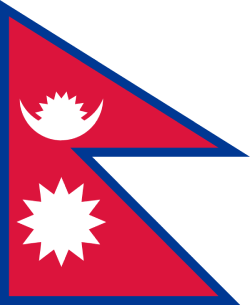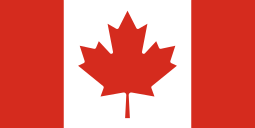Want to study in Canada?
With nearly half a million international students, Canada stands out as a top destination offering world-class education, affordable tuition fees, hassle-free visa applications. It offers a superior standard of living, diverse learning environments, quality education, and career opportunities. Canada’s international student population has tripled over the past decade, as many of the prestigious institutions frequently securing top position in global rankings.
In recent years, Indian student enrollment in Canada has remarkably increased by 260% with 800,000 students in 2022. Indians make up over 28% of the international student population in Canada. In 2023, approximately 753,000 students obtained a Canada student visa. According to the U.S. News & World Report 2022, Canada ranks 3rd globally for quality of life. Canada is also home to numerous top-ranked universities. Among the Times Higher Education rankings for 2023, 7 Canadian universities rank within the top 200 worldwide. Students from Asian countries like India, China, and Korea contribute notably to Canada’s international student community mainly for its welcoming, safe, and friendly environment.
Why Study in Canada?
Canada is a popular study-abroad destination among international students, offering quality education at affordable fees, recognized degrees, a great quality of life, and opportunities for work and immigration. With its excellent education system, hassle-free student visa process, and job prospects, many students prefer to study in Canada from all over the world, including India. Canada’s Immigration, Refugees and Citizenship Canada (IRCC) for 2022 reveals that the country hosted 551,405 international students from 184 nations. Notably, 226,450 students were from India. Situated in North America, Canada is the second largest country with top cities like Toronto and Vancouver that offer stunning landscapes, diverse culture, and top-notch education.
Study in Canada: Key Facts & Statistics
| Languages Spoken | English and French |
|---|---|
| Cost of study | CAD 30 – 40k |
| Sources of funding | Scholarships, Student Loans, and Part-time Jobs. |
| Exams Required | IELTS, TOEFL, PTE, GRE and GMAT. |
| Degrees | Diploma, UG, PG, and Doctorate (PhD). |
| Intakes | Fall, Winter, and Summer Intakes. |
| Visa | Canada Student Visa – SDS and Non-SDS |
| Best Student Cities | Montreal, Toronto, Vancouver, Ottawa, Quebec, and Edmonton. |
| Top Universities | University of Toronto, McGill University, University of British Columbia, University of Montreal, and University of Alberta |
| Cost of Living | CAD $600 – 800 per month. |
From the above table, it is clear that international students planning to study in Canada are required to get a student visa (SDS or Non-SDS), submit the English language proficiency test scores of IELTS, TOEFL, or PTE and standardized test scores of GRE, SAT, or GMAT based on the program levels you get admitted for.
Indian students choose to study in Canada, among other English-speaking countries, primarily due to its excellent education system, high standard of living, diverse environment, affordable education, and long-term return on investment. Canadian educational institutions consistently rank among the best globally, with 3 of the top 50 universities worldwide being from Canada. Canadian universities and colleges are renowned for their top-notch academics, innovative research, and commitment to providing quality education. Whether you’re into engineering, arts, business, or other fields, Canada offers a wide range of programs to attract students that match their interests and career goals.
Top 12 Benefits of Studying in Canada
Canada provides a wide range of higher education choices for international students. The country has 15 research institutions, 100 public universities, and 86 private colleges, all contributing to students’ academic growth. Community Colleges are also available for those seeking diploma degrees. Universities offer various full-time and part-time courses like post-secondary diplomas and certificates, post-graduate programs (online/hybrid/offline), short-term training, skills trade training, professional license exam preparation, bachelor’s degree programs, English as a Second Language Training, and French Language Training. Indian students have the option to study in Canada after completing their 12th grade, with various universities and colleges offering education in English. To know why you need to pursue studies in Canada, check out below.
The benefits of studying in Canada are:
- Easy Visa Policy: The Student Direct Stream (SDS) is an expressway entry which expedites the student visa application process within 20 working days.
- Quality Education: With top-ranked universities and numerous scholarship opportunities, Canada offers top-notch education at affordable fees.
- Abundant Job Opportunities: The Canadian job market offers a range of options for both locals and immigrants, ensuring competitive salaries.
- World-Class Universities: Canada’s universities consistently rank among the top globally, with 9 in the top 200 by QS Rankings and 7 in THE Rankings 2023, providing an international research network, employment outcomes, etc.
- Cultural Diversity: A multicultural environment with over 250 ethnic origins and 200 languages spoken promotes an open-minded and friendly atmosphere.
- Vibrant Campus Life: Canadian universities host various events, creating a lively academic experience and networking opportunities throughout the year.
- Immigration Opportunities: The Post-Graduation Work Permit (PGWP) allows students to gain work experience after graduation, and the Open Work Permit lets graduates stay and work in Canada for 5 years.
- Affordability: Compared to the US and UK, Canada offers more affordable tuition fees, making it a viable option for Indian students. Canadian education is cost-effective, with expenses ranging from 20 to 24 lakhs for the entire study duration.
- Skilled Faculties: Canadian institutions have highly educated and specialized faculty members.
- Safe Environment: Canada’s reputation as one of the safest countries globally ensures a peaceful and secure experience.
- Investment in Education: Canada allocates 6% of its GDP to education, the highest among other countries.
- Post-Study Opportunities: Graduates can benefit from paid internships, a post-study work visa for up to 3 years.
Check out the benefits of studying in Canada to know more about it in detail.
Education System in Canada
Canada is well-known for its affordable and highly regarded education system, attracting many international students. Nearly 400% of international students have chosen to study in Canada. The education system in Canada is categorized into three levels: Elementary, Secondary, and Post-secondary Education. Once students finish their elementary and secondary schooling at around 16-18 years, they can move on to Post-secondary Education. The government of each province in Canada manages the education system. Even though study levels might vary in different areas, Canada’s education is the cheapest and recognized worldwide. Check the below table to know the education system in Canada.
| Qualification | Duration |
|---|---|
| Certificate | 1-year |
| Diploma | 1 – 2 years |
| Advanced Diploma | 2 to 3 years |
| Bachelor’s Degree | 4 years |
| Post-Graduate Diploma/Cert. | 2 – 3 years |
| Master’s Degree | 1 – 2 years |
| Doctorate or Ph.D. | 4 to 7 years |
| Post-doctoral program | No limit |
Popular Courses to Study in Canada
Canada is renowned for its exceptional education system, offering a wide array of courses across undergraduate, graduate, and post-graduate levels. Canadian universities also provide certificate and diploma courses. Undergraduate students can opt for Bachelor’s or Associate’s degrees, which generally take 3 to 4 years to complete. At the graduate level, Master’s and Doctoral programs are available for up to 2 to 6 years, while post-graduate diploma courses in Canada typically last 1 to 2 years. These courses prioritize experiential learning which helps students to grasp concepts in practical settings, get hands-on knowledge, and gain valuable academic experience in their chosen fields.
The popular courses to study in Canada are:
- Computer Science
- Business
- Engineering
- Health Sciences
- Physiotherapy
- Information Technology
- Animation and Gaming
- Hospitality Management
- International Business Management
- Master of Business Administration
- Architecture
- Culinary Management
- Media & Journalism
- Agriculture Science
Find the top courses in Canada for international students with average annual tuition fees from the below table.
| Course | Avg. Annual Tuition Fee (CAD $) | Avg. Annual Tuition Fee (INR ₹) |
|---|---|---|
| International Business Management | CAD 15,000 – 25,000 | INR 850,000 – 1,415,000 |
| Master of Business Administration | CAD 30,000 – 40,000 | INR 1,700,000 – 2,260,000 |
| IT & Computer Science | CAD 20,000 – 40,000 | INR 1,130,000 – 2,260,000 |
| Engineering | CAD 30,000 – 50,000 | INR 1,700,000 – 2,830,000 |
| Health, Biosciences & Pharmacy | CAD 30,000 – 50,000 | INR 1,700,000 – 2,830,000 |
| Media & Journalism | CAD 20,000 – 30,000 | INR 1,130,000 – 1,695,000 |
Check short term courses in Canada here.
Top Universities to Study in Canada
Canada has prestigious universities that offer a range of degree programs with top-notch facilities, including modern libraries, spacious auditoriums, and advanced research centers, setting a standard for quality education. Universities in Canada offer on-campus accommodation which includes cozy dormitories, residential halls, and apartments, ensuring a safe and enjoyable environment for students.
Currently, 31 Canadian universities have ranked in the QS World University Ranking 2023 list. Notably, the top 11 among them have secured spots within the top 250 rankings. Let’s take a look at the top 10 Canadian universities for the academic year 2023, along with their current rankings in both QS World University, Times Higher Education, and US News & World Report rankings.
The top universities to study in Canada are:
| University Name | University Known For | QS World University Ranking 2023 (Globally) | Times Higher Education Ranking 2023 (Globally) | Tuition Fee per year (CAD) | Tuition Fee per year (INR) |
|---|---|---|---|---|---|
| University of Toronto | Top research-intense university, innovation-driven | 21 | 18 | 40,000 | 24.51 lakhs |
| McGill University | Renowned for Engineering courses | 30 | 46 | 27,000 | 16.54 lakhs |
| University of British Columbia | Strong in teaching, research, consistent ranking | 34 | 40 | 34,000 | 20.83 lakhs |
| University of Montreal | Largest university complex, prominent research | 141 | 111 | 17,000 | 10.41 lakhs |
| University of Alberta | Top in Engineering, Humanities, Health Sciences, Business | 111 | 118 | 21,000 | 12.87 lakhs |
| University of Waterloo | Leading in Computer Science, Engineering, Science, Math | 112 | 201-250 | 40,000 | 24.51 lakhs |
| Western University | Excellence in education, research, healthcare | 114 | 201-250 | 23,000 | 14.09 lakhs |
| University of Calgary | Strong research, diverse university culture | 182 | 201-250 | 37,000 | 22.67 lakhs |
| McMaster University | Research-intense, notable for nuclear reactor | 189 | 80 | 45,000 | 27.57 lakhs |
| University of Ottawa | Thrives on Excellence, Relevance, and Impact | 203 | 137 | 30,000 | 18.38 lakhs |
Check cheapest universities in Canada here.
Best Places to Study in Canada
If you’re considering studying in your preferred university, you must also explorebest student cities in Canada.According to the QS Best Student Cities Rankings 2023, the top cities in Canada are Toronto, Montreal, Vancouver, Ottawa, and Quebec.Get to know the popular cities of Canada in brief.
- Toronto: Toronto,situated in the province of Ontario has Canada’s most esteemed university, the University of Toronto. It’s not only the largest city in Canada but also renowned for its multicultural environment. It is known as the financial center of Canada as it’s home to five of the country’s largest banks.
- Montreal: As Canada’s second-largest city, Montreal stands out with a high concentration of post-secondary students.Montrealoffers a thriving academic environment, home to universities like McGill, Université de Montréal, and Concordia University.
- Vancouver: This vibrant Canadian city is the third-largest metropolis and is considered one of the world’s most livable cities. With universities like the University of British Columbia, Simon Fraser University, and the University of Victoria,Vancouveris a great choice for students who want both city life and easy access to the outdoors.
- Ottawa: Ottawahas great universities that welcome foreign students from various fields and offer top-notch teaching and research. The city provides easy transportation, affordable housing, jobs, and scholarships, making it a fantastic place to study in Canada.
- Quebec: Quebec cityis known for its friendly locals and holds the lowest unemployment rate among all cities in Canada. It is a French-speaking city, but many universities primarily use English as the medium of instruction. These universities offer outstanding education at affordable rates and also offer plenty of career prospects.
How to Study in Canada?
International students planning to study in Canada need to consider the following five steps to get started. Find the infographic below to know the process.
Intakes to Study in Canada
Canadian colleges and universities stand apart from Indian institutions with their three intakes, which are also known as semesters. Understanding the intakes in Canada is crucial for those aspiring to study abroad, as it defines the periods during which universities globally accept applications. Canadian universities offer three intakes namely Fall, Winter, and Summer. These intakes signify the period when students from around the world can apply to Canadian educational institutions.
- Fall Intake: Fall intake begins in September. It is the most popular choice among Indian students with a wide range of courses and scholarship availability. In this intake, Canadian universities receive the highest number of applications. Fall intake is also known as September intake and Autumn intake.
- Winter Intake: Winter intake is usually a secondary option that starts in January, suitable for those who missed the Fall deadline. While the course selection may be limited compared to the September intake, students can still expect similar prospects in terms of career opportunities, internships, and scholarships. Winter intake is also known as the January intake.
- Summer Intake: Summer intake, which commences around April and May, is the last option and is offered by only a few universities. It offers diploma and vocational programs. Summer intake is also known as the Spring intake or May intake.
| Intake | Program | Admission Deadline |
|---|---|---|
| September or Fall | Undergraduate and Postgraduate | December – March |
| January or Winter | Undergraduate and Postgraduate | September – November |
| May or Summer or Spring | Diploma | January – February |
Canada Student Visa Requirements for International Students
International students who want to study in Canada need a study permit. It is a necessary immigration document that validates their stay in Canada and accompanies a visitor visa or Electronic Travel Authorization (eTA). Alongside the study permit, you need a visitor visa or eTA to enter legally. This permit is essential for Indian students which grants permission to study at Designated Learning Institutions (DLIs) in Canada.
Please note that a study permit is not a visa. A student visa will authorize your entry to Canada. To apply for a Canadian Student Visa, it’s best to start the process 4 to 6 months before your classes begin and after you’ve received an Admission Offer from a Canadian Designated Learning Institute. You can apply online using the Government of Canada Key (GCKey) portal or at a Visa Application Centre (VAC) or directly at the entry port if you prefer. The fee for applying for a Canadian Student Visa is $150 CAD, and it also covers a $85 CAD biometrics fee and a $45 CAD service fee.
The study visa processing time will be around 4 to 8 weeks. If you’re in a hurry, the Student Direct Stream (SDS) option processes it in just 20 days. Indian students are eligible for the SDS category and can apply by submitting the necessary documents for their student visa.
| Difference between SDS and Non-SDS | Study Permit Extension | Canada Spouse Visa | Canada Visa Rejection | Canada Visa Interview Questions |
|---|
What are the documents required to apply for a Canadian study visa?
- Letter of acceptance from a Designated Learning Institution (DLI)
- Valid passport or travel document
- Identity proof authorized by the resident’s government
- Financial statement demonstrating the ability to cover living costs, return air tickets, and fees
- Medical information
- Statement of intent and how you contribute to the resources
- No criminal record certificate
- Canadian bank account
- Guaranteed Investment Certificate (GIC)
- Student or education loan proof
- Bank draft in Canadian dollars
- Proof of payment of Tuition and Housing Fees
- Letter from sponsoring school or individual
- Proof of scholarship
- Attestation of issuance of Quebec Acceptance Certificate (CAQ)
- Letter of explanation/SOP
Documents Required for Studying in Canada for Indian Students
The documents you need to submit while applying for admission to Canadian universities/colleges are:
- English language proficiency test scores:TOEFL/IELTS/PTE/Duolingo/ CAEL
- Standardized test scores –SAT/GRE/ GMAT / LSAT
- Letter of Recommendation(LOR)
- Work experience certificate,if any.
- Academic transcripts(school/bachelor’s/master’s degree certificates)
- Statement of Purpose (SOP)
- CV/Resume
- Essay
- Copy of your valid passport
- Proof of finances
Cost of Studying in Canada
The cost of studying in Canada ranges from CAD 13,000 to CAD 35,000 in a year based on the type of degree and institution. Humanities, education, and arts programs tend to be more affordable, while medicine and engineering are pricier. On average, undergraduate studies cost around CAD 6,800 (Rs. 4,16,582/-) per year, and master’s programs range from CAD 21,100 annually, as per Statistics Canada (2022). Postgraduate studies have higher tuition fees, with MBA programs being the most expensive, approximately between CAD 30,000 and CAD 42,000. Compared to other developed countries, Canada offers more economical education programs and funding opportunities like scholarships, student loans, bursaries, and assistantships to international students.
Check the following table to know the program level and the estimated tuition fee.
| S.no | Study Program | Average Annual Fee in Canadian Dollars (CAD) | Average annual Fee in Indian Rupees (INR) |
|---|---|---|---|
| 1 | Undergraduate Program | $13,000 – $20,000 | ₹7,00,000 – ₹10,75,000 |
| 2 | Postgraduate Master’s Degree | $17,000 – $25,000 | ₹9,25,000 – ₹13,50,000 |
| 3 | Doctoral Degree | $7,000 – $15,000 | ₹3,75,000 – ₹8,00,000 |
| 4 | Masters of Business Administration (MBA) | $30,000 – $40,000 | ₹16,25,000 – ₹21,75,000 |
| 5 | Foundational Courses | $20,000 | ₹10,75,000 |
Scholarships to Study in Canadian Universities
Scholarships are essentially monetary rewards granted to eligible students based on academic excellence, and they don’t require repayment. Meritorious students with strong academic and extracurricular records can apply for these scholarships. These scholarships, provided by both the Canadian government and external organizations, aim to ease the cost of education abroad. Need-based scholarships are also accessible.
Find the list of popular scholarships in Canada for Indian students from the table below.
| S.no | Scholarship Name | Description | Amount |
|---|---|---|---|
| 1 | Banting Postdoctoral Fellowships | Postgraduate scholarships in science and healthcare | $54,219/year (taxable) |
| 2 | Vanier Canada Graduate Scholarships | Scholarships for doctoral study | $50,000/year |
| 3 | Queen’s University International Scholarships | Scholarships for international students with high grades | $6,969 |
| 4 | University of Calgary International Entrance Scholarship | Scholarship for international UG applicants | Up to CAD 15,000 |
| 5 | Canada-ASEAN Scholarships and Educational Exchanges for Development 2021 | Scholarships for Bachelor’s and Master’s | Up to CAD 15,900 |
| 6 | CGSP Postdoctoral Fellowships 2017 | Scholarships for postdoctoral study | $45,000/year |
| 7 | Shastri Indo-Canadian Institute | Fellowships at various levels for research and training | Varies |
| 8 | Canadian Commonwealth Scholarship and Fellowship Plan | Scholarships for advanced study and research | Varies |
| 9 | Ontario Graduate Scholarship Program | Scholarships for graduate students | Varies |
| 10 | National Research Council of Canada (NRCC) | Research associateship for Master’s and Ph.D. holders | Variable |
Education Loan for Studying in Canada
The total expenses for studying in Canada are influenced by factors like the chosen program, university, course duration, and living costs. To assist students who struggle to afford to study and live in Canada, various banks and financial institutions extend education loans for Canada. Before applying for an educational loan, reviewing the eligibility criteria is important to ensure loan approval. Since different loan schemes cover different expenses, it’s advisable to consult the banks to understand the specific expenses and loan schemes that are applicable. Educational loans typically cover various expenses, including.
- Admission fees
- Tuition fees
- Transportation charges
- Books, stationery, and other study materials
- Laboratory fees
- Hostel fees including food
- Purchase of a laptop with the necessary configuration (If required for the course)
- Expenses for project work or study tours
Cost of Living in Canada
The cost of living in Canada ranges from CAD 15,000 to CAD 20,000 per year. There’s a notable contrast in the budget of living in Canada and in one’s home country. That’s why it is essential to understand the lifestyle and the cost of living in Canada. Quebec stands out as an affordable Canadian city with comparatively lower living costs. The cost of living in Canada involves factors like food, housing, clothing, books, transportation, and recreation, with an average of approximately CAD 19,000 (INR 11,62,173). All Canadian residents enjoy free healthcare services, a benefit extended to permanent migrants.
| Expenses | Cost in CAD per month | Cost in INR per month |
|---|---|---|
| Accommodation | $800 – $2,500 | ₹42,000 – ₹1,31,000 |
| Utilities (electricity, water) | $50 – $150 | ₹2,600 – ₹7,900 |
| Internet | $50 – $100 | ₹2,600 – ₹5,200 |
| Groceries | $200 – $400 | ₹10,400 – ₹20,800 |
| Transportation | $90 – $120 | ₹4,700 – ₹6,300 |
| Eating Out | $10 – $25 | ₹520 – ₹1,300 |
| Mobile Phone | $50 – $100 | ₹2,600 – ₹5,200 |
| Textbooks and Supplies | $500 – $1,000 | ₹26,000 – ₹52,000 |
| Health Insurance | $600 – $1,000 | ₹31,200 – ₹52,000 |
| Food | $300 – $400 | ₹15,600 – ₹20,800 |
| Entertainment | $150 | ₹7,800 |
Post-Study Work Opportunities in Canada
Canada offers a wide array of job opportunities catering to students at various educational levels, graduates, and professionals. Canada annually offers around 300,000 work permits to foreign students. International students have plenty of work-study options including on-campus and off-campus jobs, co-op positions, and internships. Students are eligible to work after graduation, requiring a Post-Graduation Work Permit (PGWP) which costs $255 CAD to apply for. A post-graduation work permit in Canada enables graduates to gain work experience after their studies and serves as a pathway to Permanent Residency (PR) through the Express Entry system. The PGWP is usually issued for the same duration as the study program, with a maximum of 3 years.
To be eligible for the Canadian Post-Graduation Work Permit, having a job offer is crucial. Benefits for those with a job offer include unrestricted work in Canada, family sponsorship under a Dependent Visa, earning in Canadian dollars, unrestricted travel within the country, applying for PR after one year of work, and exposure to top-tier companies and their work culture. Students with employment offers qualify for an Open Work Permit, allowing them to work for any employer in Canada for up to 3 years. The permit also allows job changes if desired.
The documents required to apply for the open work permit are:
- Proof of identity
- Proof of employment
- Proof of relationship
- Valid visa with a six-month duration
- Letter from your Designated Learning Institution (DLI) confirming study completion
- Certificate of degree completion
- Recent passport-size photographs (2)
- Academic transcripts
- Medical certificate
Job Prospects in Canada
In recent years, Canada has welcomed a large number of international students, offering them various work opportunities during and after their studies. Forbes and US News rankings highlight Canada as the best G20 country for business operations. The Economist Intelligence Unit predicts Canada will be the 3rd best G7 country for business from 2018 to 2022. According to Statistics Canada (2021), about 60% of international students employed during or after their studies became landed immigrants within 10 years of their first study permit.
With a Canadian student visa, students can work up to 20 hours per week in paid jobs while studying. Part-time jobs in Canada are typically paid by the hour, averaging around $13-16. As per a recent update, international students with off-campus work authorization on their study permit aren’t limited to 20 hours per week, they can work full-time during school breaks.
Get to know the highest paying jobs in Canada. The average salary of graduates in Canada is $74,819 per year or $38.37 per hour. Find the job roles and their average annual salary from the table below.
| Job Roles | Average Salary in CAD per year |
|---|---|
| Business Intelligence Analysts | $77,870 |
| Cloud Architects | $121,555 |
| Cloud Systems Engineer | $120,000 |
| IT Project Manager | $91,300 |
| Data Scientists | $85,461 |
| Developers (Web, Software, Mobile) | $75,628 |
| DevOps Engineers | $89,187 |
| Full-Stack Developers | $88,542 |
| IoT Specialists | $105,000 |
| Security Specialists (Data, Info, Network, Cloud) | $100,000 |
| Airline | $167,000 |
| Executive Management & Change | $86,000 |
| Financial Services | $79,000 |
| Legal & Paralegal | $66,000 |
| Legal Department | $64,000 |
| Finance Control & Strategy | $60,000 |
Frequently Asked Questions
Tuition fees in Canadian Universities differ based on the program and institution you opt for. On average, international undergraduate students can expect to pay around $36,100 per year, while international graduate students may pay tuition costs of $21,100 per year (Statistics Canada, 2022).
Canadian universities do not provide tuition fee waivers, which means getting a free education in Canada is not possible. However, a few Canadian universities like the University of Toronto, and the University of Alberta offer fully funded scholarships for international students.
For obtaining a Canada student visa, a minimum bank balance of $10,000 CAD is necessary. If you want to study in Canada, you’ll be required to demonstrate that you possess a minimum of $25,000 CAD.
You can sponsor or get sponsorship from:
- spouse
- common-law partner
- conjugal partner
- son or daughter
- parent
- grandparent
- orphaned brother or sister
- orphaned nephew or niece
- orphaned grandchild
You can know how to get a Canada spouse visa here.
Typically, a study gap of around 2 years is acceptable for pursuing education in Canada, although the study gap in Canada can differ based on the particular university and program requirements.
Yes, degrees earned from Canadian institutions are recognized globally and renowned for their high-quality education.








